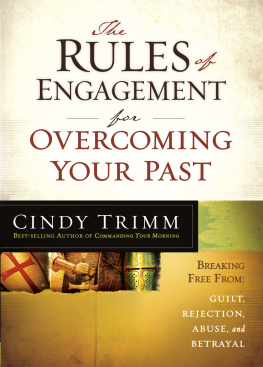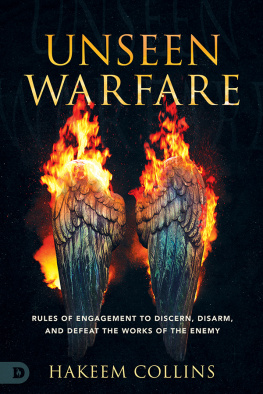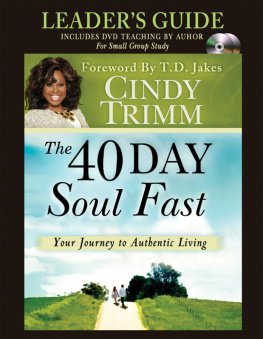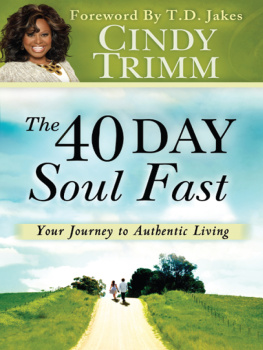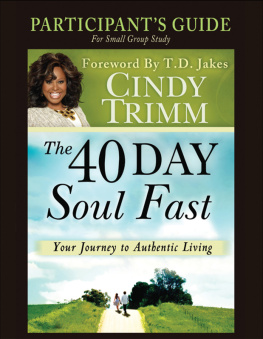CHAPTER 5
OVERCOMING THE SPIRIT OF AN ORPHAN: REJECTION AND ABANDONMENT
I will not leave you orphans; I will come to you.
JOHN 14:18
R EJECTION, ABUSE, ABANDONMENT, betrayal, and neglect have caused many Christians to believe they are disqualified from finding true, authentic friendships and lasting intimate relationships. Feeling intense loneliness and psychological disconnection from people, many individuals live with what I call the spirit of an orphan.
Current estimates tell us that there are at least 151 million orphans in the world today. These numbers are staggering and increase each time there is a war, a drought, a natural disaster, a pandemic such as AIDS, or any of the other catastrophes that destroy families. In the natural to be an orphan means to be left behind by maternal and paternal caregivers because of death, physical or emotional abandonment, or abuse. Spiritually any person can be considered an orphan. Anything that causes a person to feel alone and emotionally detached can contribute to an individual living as a spiritual orphan. Within our communities and churches we have many leaders, believers, and children who are orphans. They are unable to connect with others, and uncomfortable with building and thriving in a community, despite having both parents alive, living with them under the same roof, and being surrounded by people who genuinely love them.
I believe as Christians we should help address the world orphan crisis. Yet equally important is the spiritual orphan crisis that stems from abandonment. Abandonment is when a person withdraws his presence and support from another person; reneges on his duty, responsibility, or obligation; or betrays covenant or commitment. The enemy seduces people, particularly those who play a key role in another persons development and progress, to renege on commitments and contracts and to walk away from relationships and responsibilities. This act of abdication has the power to cause great emotional pain, financial hardship, spiritual misalignment, organizational chaos, and confusion in the abandoned.
Abandonment can be physical, psychological, or emotional, and can occur with ones job or career, a political or military post, a ministry assignment, and within family relationships. Issues arising from abandonment include the inability to trust, manipulation, shame, fear of rejection, loneliness, suspicion, addictions, codependency, and a host of other maladaptive sets of behavior that interfere with a persons ability to foster future healthy and loving relationships.
I have found that the orphan paradigm often remains even after a person has been adopted. Thus this mind-set is more than an emotional and psychological state of being but also a spiritual phenomenonone that can be broken only when a person fully embraces the fact that God wants to be our heavenly Father who adopts us into His family.
Romans 8 gives us an amazing promise starting in verse 14. The passage reads:
For as many as are led by the Spirit of God, these are sons [and daughters] of God. For you did not receive the spirit of bondage again to fear, but you received the Spirit of adoption by whom we cry out, Abba, Father. The Spirit Himself bears witness with our spirit that we are children of God, and if children, then heirsheirs of God and joint heirs with Christ, if indeed we suffer with Him, that we may also be glorified together.
ROMANS 8:1417
Even if we have experienced abandonment, rejection, or betrayal in any form or fashion, God gives us the spirit of adoption to heal our abandonment issues. We are not alonethere is someone who will fight for us: the God who loves us so dearly and longs for us to call Him Abba, or Daddy.
I grew up without a father. It was not until I received the revelation that I had a heavenly Father who loves me that I was delivered from the orphan spirit. The journey to this understandingthe journey home, as I like to think of itwas long and often dark and lonely. At times I still see little signs that there are areas of trust that still need healing. But in coming to know God, I also came to know that I was His child, and that He unconditionally loved me more than I loved Him, or even myself. The same is true for youyou have someone who unconditionally loves you.
Through my own personal experience, I also came to see the subtle power of the orphan spirit and how it limits our destinies by putting a lid on how connected we are to a community and how open we are to allowing others to know us and to love us. I saw how important it is to break this emotionally isolating condition of psychological detachment by receiving the love from Daddy God as my heavenly Father, and I hope you will too.
In these last days I believe the spirit of revival and renewal will be characterized by the spirit of adoption, a period when God will reveal His sincere loving-kindness in a profound way. Love is one of those words that causes so many to cringe because they associate it with individuals who, in a loving relationship, hurt them. God is not a man, that He should lie (Num. 23:19). Look at how the Old Testament prophet Malachi records the coming move of God:
Behold, I will send you Elijah the prophet before the coming of the great and dreadful day of the LORD. And he will turn the hearts of the fathers to the children, and the hearts of the children to their fathers.
MALACHI 4:56
What I believe he is describing here is the spirit of adoption.
A HARLOTS SON
We can probably name most of the people in the hall of faith of Hebrews chapter 11, but tucked away in verse 32 is Jephthah. Who? you may ask. Well, let me tell you his story.
Jephthahs story is told in Judges 11. His father had a fling one night with a prostitute, and Jephthah was the result. Then when his father, Gilead, had other children with his wife and those children came of age, Jephthahs half-siblings chased him out of their home and told him, You shall have no inheritance in our fathers house, for you are the son of another woman (Judg. 11:2). Enter the orphan spirit. Disinherited, rejected, and wounded in the house of his father, Jephthah fled to become an outlaw.
He set up residence in the land of Tob and there banded together with worthless men (Judg. 11:3) who went out raiding with him. He was like David in another skin, who, rejected by his adoptive father King Saul, fled when Saul grew jealous of him and tried to kill him, and everyone who was in distress, everyone who was in debt, and everyone who was discontented gathered to him (1 Sam. 22:2). These became Davids mighty menhis own personal army. Those gathered to Jephthah became a similar band.
At the root of the orphan spirit is bitterness that isolates and then incubates that isolation into all manner of bad things.
When Ammon invaded the land of Jephthahs father, Gilead, the Gileadite elders came to Jephthah for help, knowing he had become a mighty warrior. They told him if he delivered them from the Ammonites, he could become their leader. It was at this point Jephthah recognized the bitterness of the orphan spirit that was in his heart: Did you not hate me, and expel me from my fathers house? Why have you come to me now when you are in distress? (Judg. 11:7).
Jephthah had to make a choice: either he would remain bitter and exiled, choosing to identify with the orphan spirit, or he could choose to be redeemed and become the leader he was destined to be. Jephthah chose the spirit of adoption and became a judge of Israel, delivering them from the Ammonites and ruling over them for six years.
Do you see what the orphan spirit does? Although Jephthah was destined for leadership, the orphan spirit turned him into a criminal instead. Disenfranchised, he felt his only option was to fend for himself, reject societal norms, and get ahead by any means he could. At the root of the orphan spirit is bitterness that isolates and then incubates that isolation into all manner of bad things. Feeling rejected and on their own, orphans grab for happiness and fulfillment any way they can, usually compromising for self-promoting, shallow gains rather than what is wholesome and beneficial to all.
Next page
